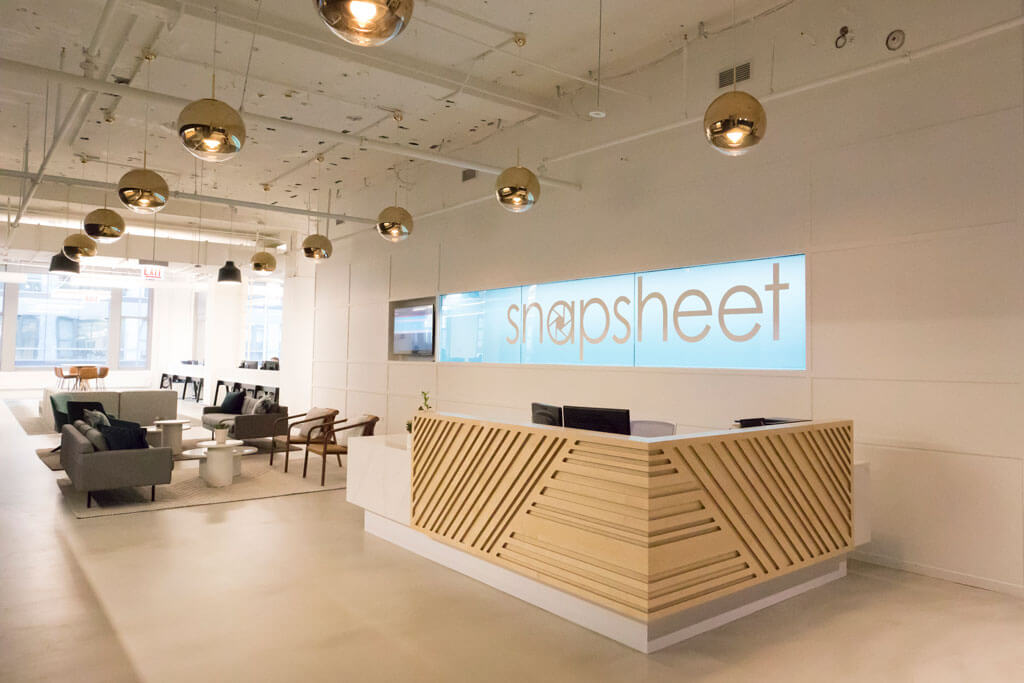“How about we do this one in Swift?” My cortisol levels rose.
This was the second week of my first job, working as a mobile engineer at Snapsheet on a team of two with my manager. I had just moved halfway across the country from California to Chicago, where I knew a handful of people. I knew much less than a handful of Swift.
Backtrack 8 months. I was a college senior at a crossroads, graduation looming. Though I’d completed a dual degree in Computer Science and Business at USC, it had taken me until my senior year fall semester to discover a form of programming that resonated with me — mobile development.
I faced a tough choice: interview for consulting roles or commit to exploring my newfound passion, understanding that the job market may not reward my belatedly developing skill set.
Having discovered career clarity, I decided to double down and bet on myself. I constructed a curriculum that balanced conceptual study with project-based application, and prepared furiously for technical interviews.
With help from incredible peers and support from friends and family, I was able to gain the iOS competence and Objective-C familiarity to snag a job offer before graduating as an (iOS) mobile engineer at Snapsheet, a rapidly growing company developing a variety of innovative products in the insurance space — more on that later. The hard part was over, I naively thought.
“Nice job man! Your first project went really well. We did some great work.” I beamed.
Picking up a new programming language while shipping production code, learning how to participate in software architecture discussions, and navigating a new company had not been easy, and I had certainly taken my fair share of lumps. There had been late nights and tough challenges, but surrounded by friendly, generous, and intelligent coworkers and an incredibly patient and helpful manager, I always felt I would push through to a solution. Now that I had a project under my belt and was beginning to establish myself, I felt my confidence grow.
“How about we do the next one in Android?” My cortisol levels rose again.
The experiences I detailed above highlight what I believe to be the core tenants of Snapsheet engineering: strong camaraderie, learning/growth mindset, and a commitment to meritocracy.
At the time that I joined Snapsheet, we had 9 engineers, our mobile team 2. A little over a year later, those numbers have jumped to 35 and 4. One of the main draws for me to join this company was the strong feeling that this team is a family, a unit that supports and accepts one another in both professional and personal contexts. Despite the rapid growth we’ve experienced, that characteristic has not changed. If anything, that hallmark has only intensified as each new hire brings their unique perspective and flavor into the strong existing community.
Part of what’s allowed our community to thrive is our full embrace of a learning mindset. Snapsheet empowers every individual to maximize their learning velocity by entrusting them to confront new challenges head-on, exemplified by the high degree of employee autonomy, and bi-weekly hack days. While the existing core competency standard of each team member is already very high, it’s the premium and cultural emphasis placed on the meta-skill of learning and the countless opportunities provided to exercise that skill that has fueled us in our mission to transform a long-standing and stubborn industry.
Perhaps the workplace characteristic that stands out to me the most about Snapsheet is the commitment to ideas above all — a true meritocracy. Even from my first days on the team I’ve always felt encouraged to contribute and openly debate thoughts and opinions on any work-related topics, ranging from architecture decisions regarding our SDKs, internal libraries, and suite of apps, to UI designs, to processes to implement as we grow, manage, and scale our team.
Coming to work each day with a tight-knit group of zany and talented individuals, where I feel continuous concrete growth from the diverse new challenges I’m put in positions to face, in a role where my viewpoint carries weight and impact, I can’t help but feel very fortunate. We’re still growing at an incredible rate, pushing the boundaries of technology, fine-tuning our operations, and rushing the proverbial land grab that insurance technology has to offer. If any of this resonates with you — We’re Hiring.

Subscribe for Updates
Top 5 Reasons Why You Should Subscribe
-
#1
Stay up-to-date on industry news and trends
-
#2
Learn about claims management best practices
-
#3
Gain insights into customer behavior and preferences
-
#4
Discover new technologies and innovations
-
#5
Engage with a community of industry professionals
Appraisals
Reduce cycle time and improve appraisal accuracy
Claims
Claims management with our modular, end-to-end solutions
Payments
Deliver payments effortlessly with automated tools and no-code workflows